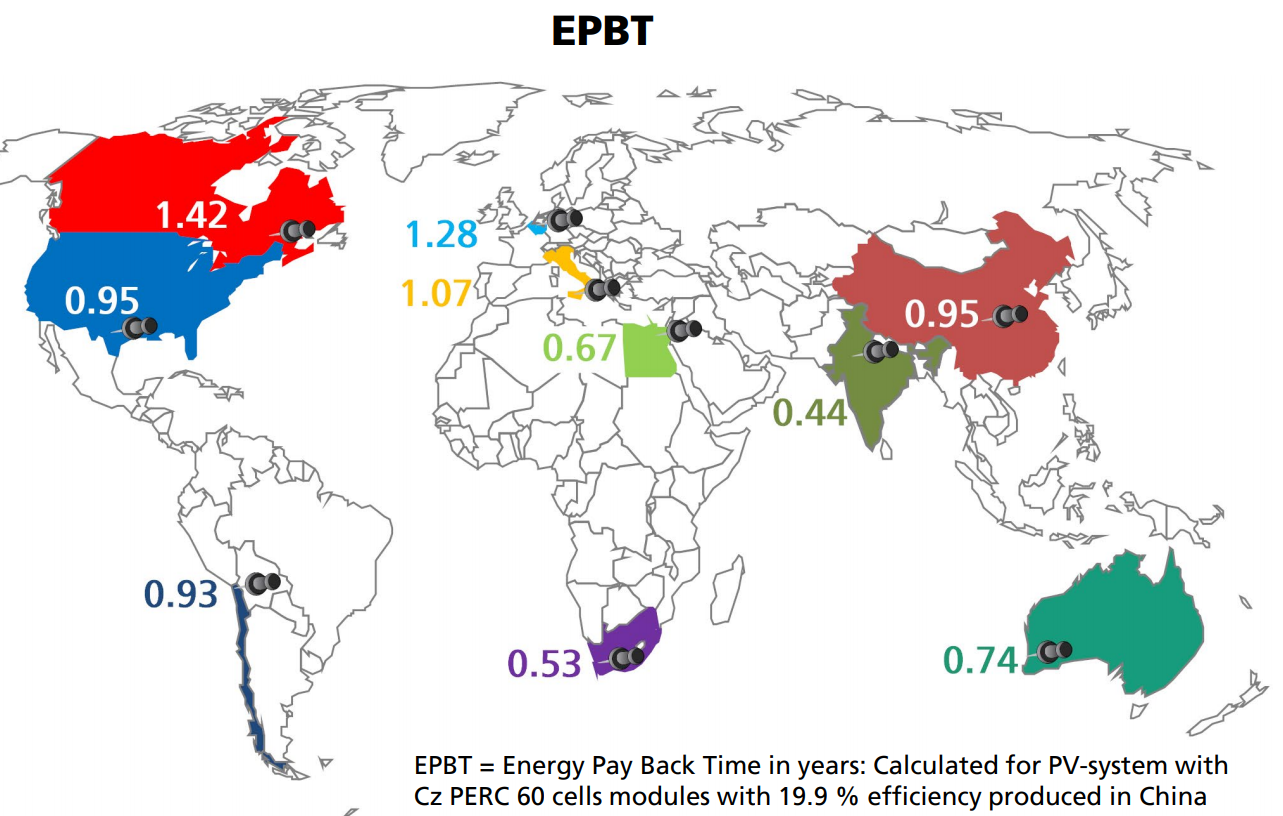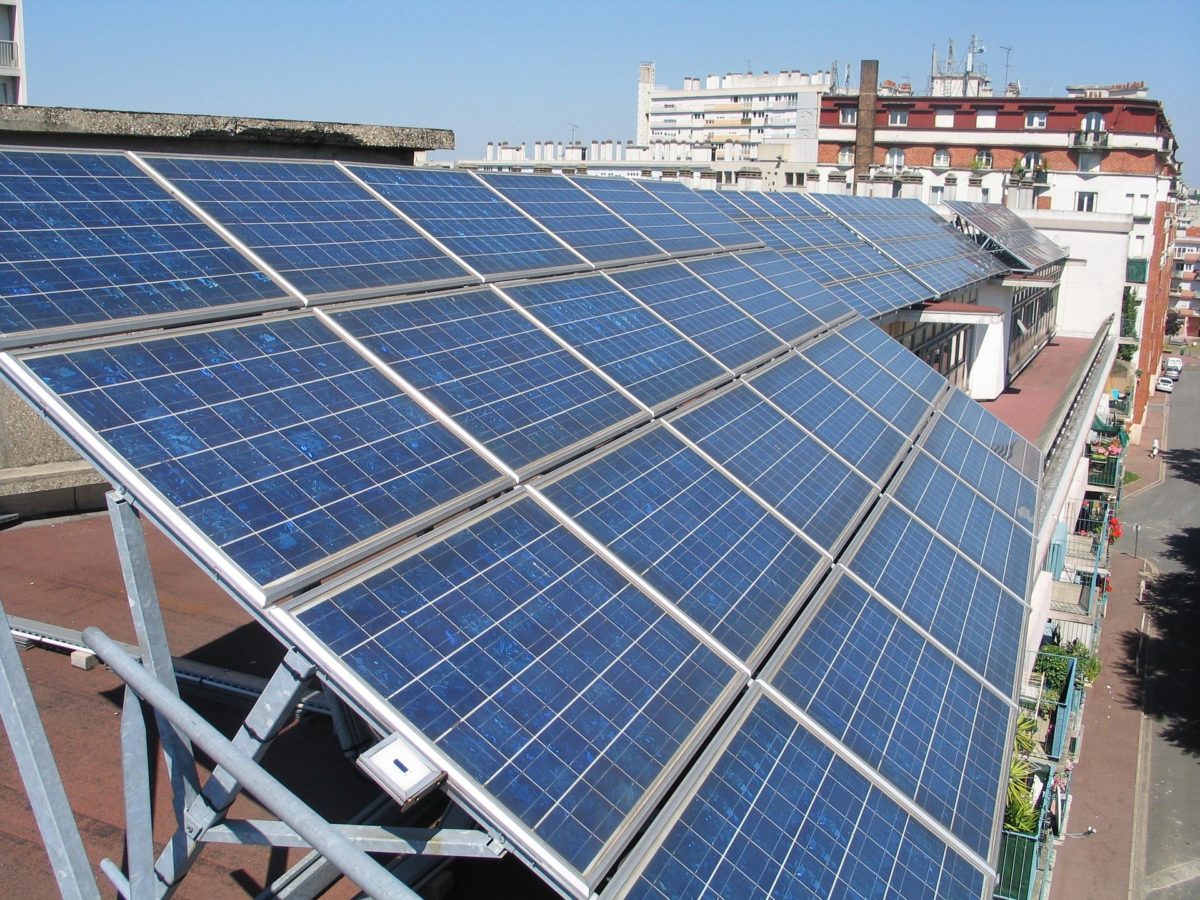From pv magazine India
The latest version of the Photovoltaics Report produced by German research body the Fraunhofer Institute of Solar Energy Systems (ISE) shows the energy payback time of PV systems varies greatly depending on the geographical location.
The report authors considered the rooftop PV installation in different geographies used a typical, Chinese-made, 60-cell, mono-crystalline PERC, 19.9%-efficient solar module.
As per the report, such a PV system, mounted in India, would take only 0.44 of one year (160.6 days) to generate the amount of energy consumed during its production process, with the figure rising all the way to 1.42 years – 518.3 days – in Canada.

The energy payback time is the period required by the PV system to produce the same amount of electricity (converted into equivalent primary energy) as consumed by during its manufacture.
The researchers considered energy needed during different stages like poly-Si, ingot wafering, cells, modules, balance-of-systems, and transport to arrive at the total energy consumption in a PV system production.
In the examples cited by the report’s authors, the balance-of-system, non-generating components of the PV system required the most time to displace their energy footprint, accounting for about 0.46 of one year (167.9 days) of 1.28-year (467.2-day) energy payback period of a PV installation in Europe.
This content is protected by copyright and may not be reused. If you want to cooperate with us and would like to reuse some of our content, please contact: editors@pv-magazine.com.




Interesting & knowledgeable read
I think the data is incorrect the payback time for PV cells is far longer than 167 days even in India.